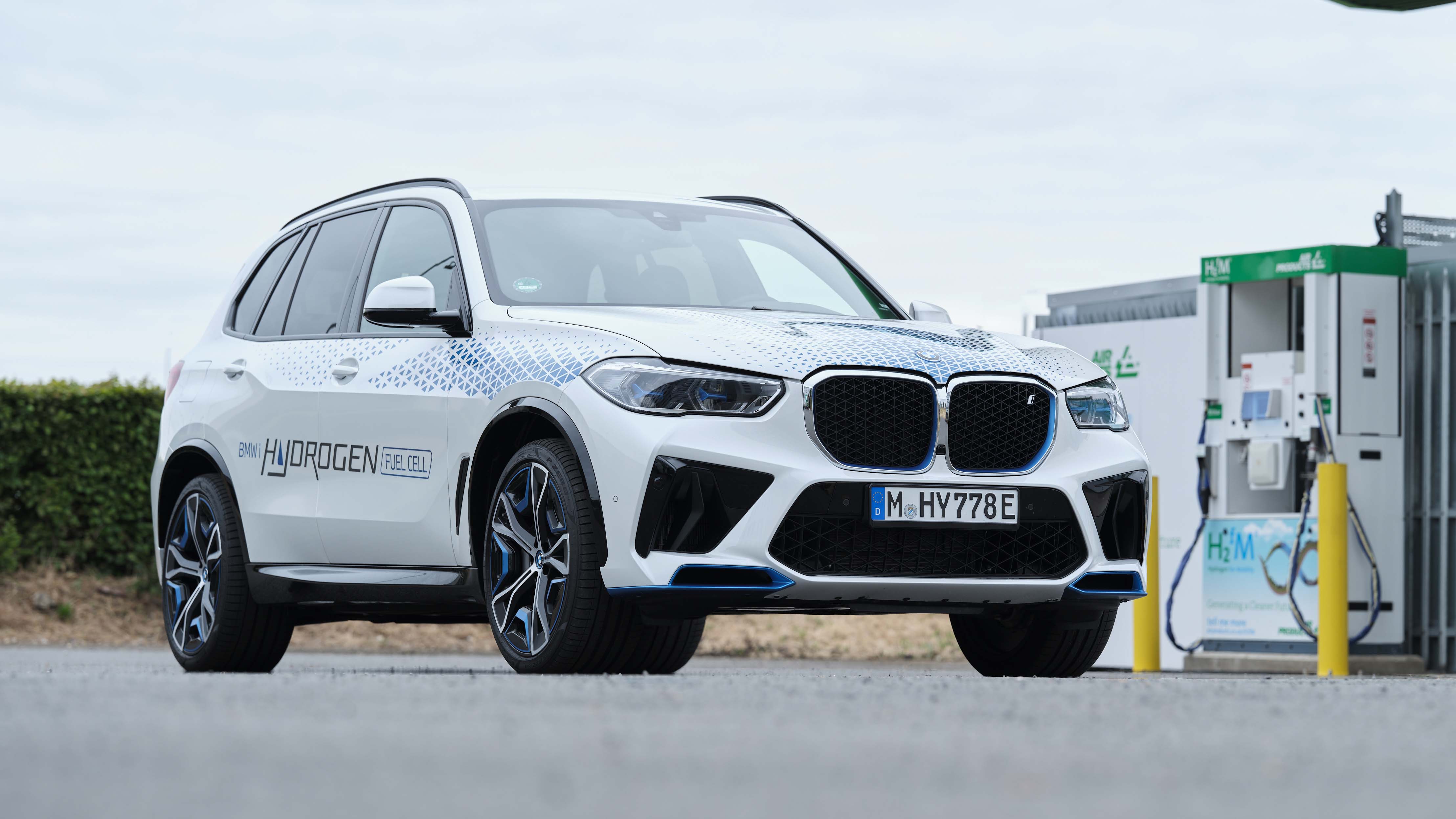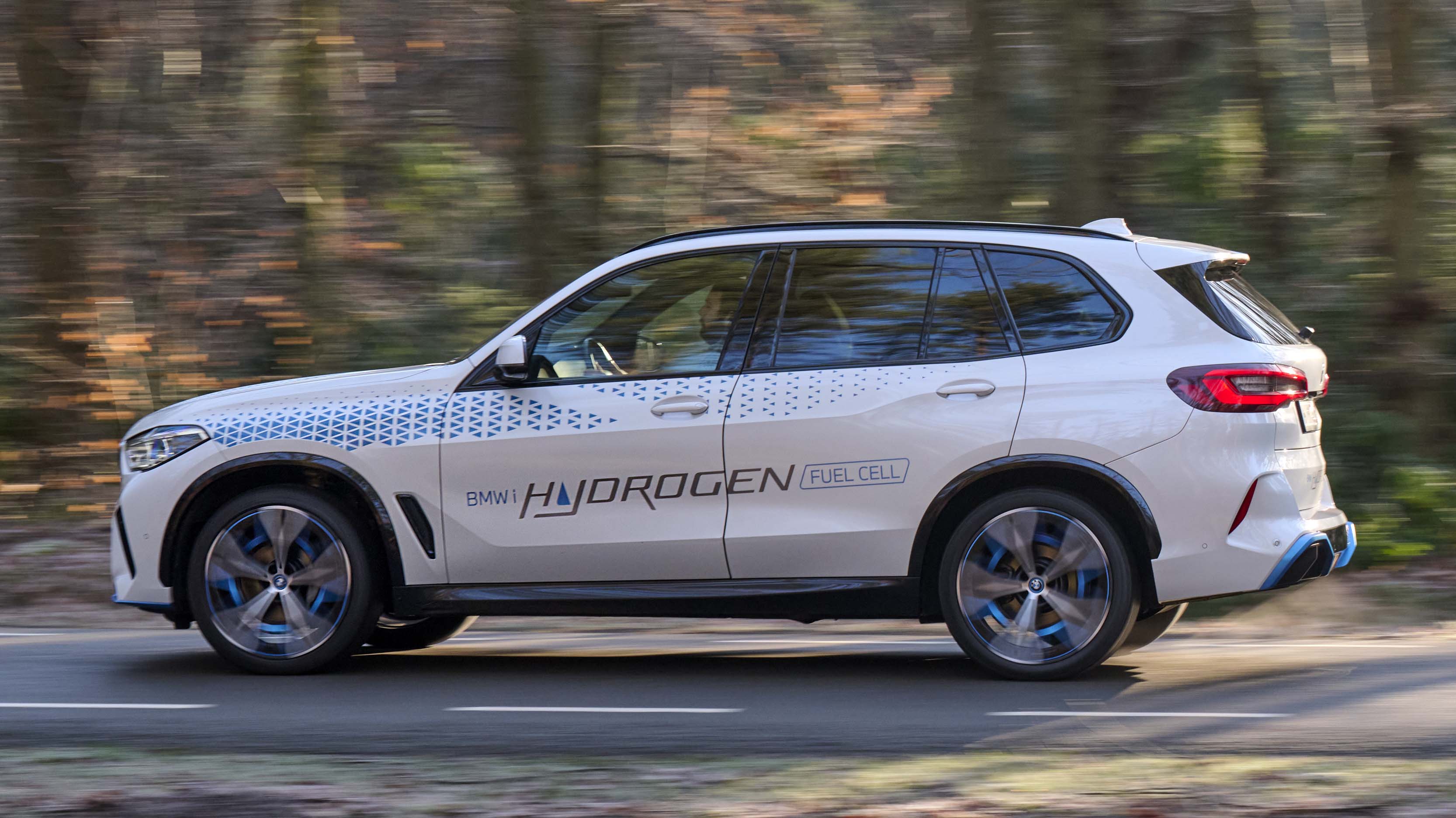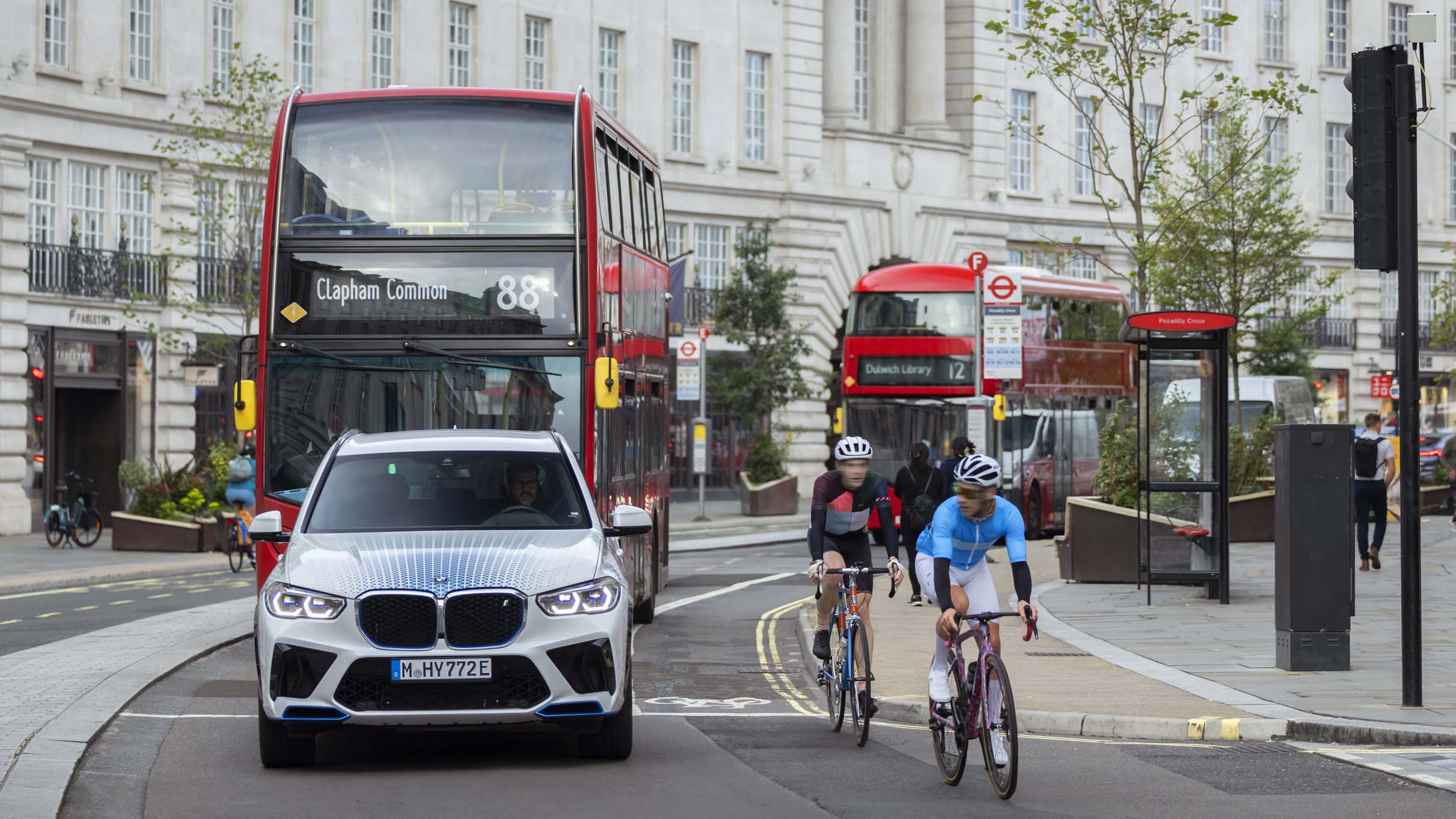
BMW is building a hydrogen-powered production car for 2028
... as is Toyota, and both will use a 'next-gen' fuel cell powertrain that they're both working on together
BMW is planning on building a proper hydrogen-powered production car that'll go on sale in 2028... along with Toyota. Both cars will use 'next-gen' fuel-cell tech they've been working on together for years.
We've no details on the production model in mind, though we’ve previously seen BMW testing its hydrogen-powered iX5 fleet (pictured above). That FCEV ran with six kilos of compressed hydrogen in two tanks, which gave over 300 miles of range. Presumably this next iteration of the technology will go much further.
BMW tells us the series production model will be one already on the existing line-up, offered as a powertrain variant rather than a standalone product. But don’t be thinking that there’s some i5-Prius-cross happening. The carmakers have said their respective models will maintain their ‘distinct brand identities and characteristics’ – look forward to a hydrogen-powered, excessively-grilled Bimmer and a planet-saving, Grandma-pleasing Toyota, then.
Koji Sato, president of Toyota Motor Corp, said: “BMW and Toyota share the same passion for cars and belief in ‘technology openness’ and a ‘multi-pathway’ approach to carbon neutrality. Based on these shared values, we will deepen our collaboration in efforts such as the joint development of next-generation fuel cell systems and the expansion of infrastructure, aiming for the realisation of a hydrogen society.”
A hydrogen society sounds expensive, but Oliver Zipse, chairman of the BMW board, has previously said that in a situation where there isn’t any charging infrastructure, hydrogen is the only carbon-neutral solution. Zipse doesn’t, however, expect the powertrain to be mainstream. And that could be hydrogen’s perpetual obstacle: cost-efficiency.
Lower demand usually means high prices (unless you’re hunting for an Oasis ticket and caught up in a dynamic pricing disaster of course). But with both collaborating on the production volumes, they hope to reduce the costs of the fuel-cell tech.
The pair highlight a need for developing hydrogen infrastructure by working alongside governments and investors. It might be a bit 'apples and pears', but consider the Nissan Leaf launched in 2010, and just this week Vauxhall and Cenex reported that only 19 per cent of UK households are near a public EV charging point. The rollout of a reliable hydrogen refuelling network – when each station costs the GDP of a small country to implement – in only three years might be a tad ambitious.
Top Gear
Newsletter
Thank you for subscribing to our newsletter. Look out for your regular round-up of news, reviews and offers in your inbox.
Get all the latest news, reviews and exclusives, direct to your inbox.
Trending this week
- 2026 TopGear.com Awards
"Drives like a BMW ought to": why the iX3 is Top Gear's 2026 Car of the Year









